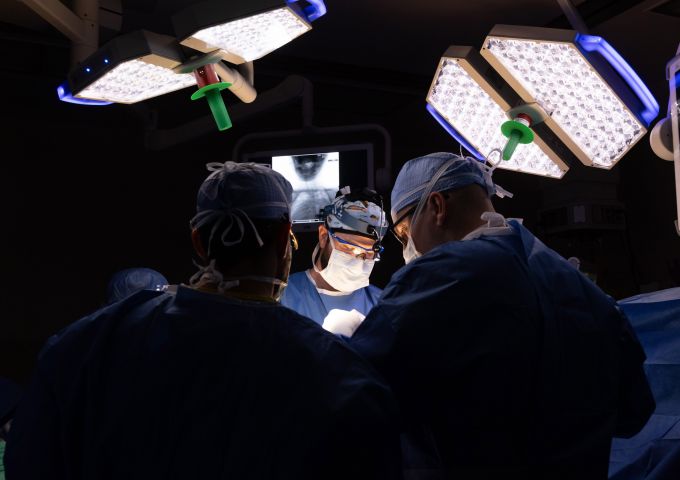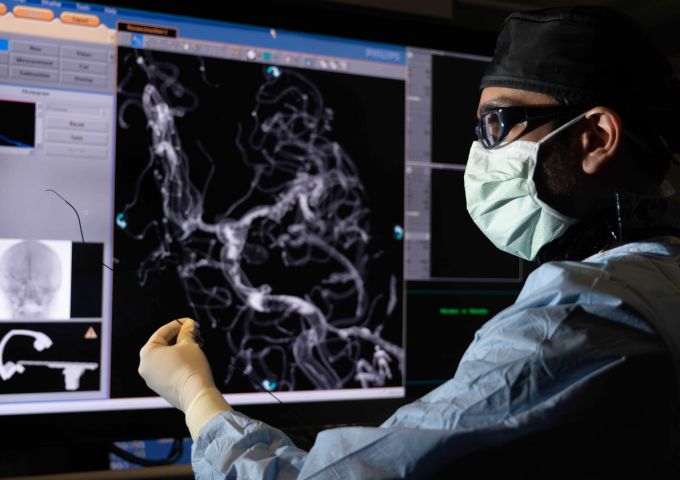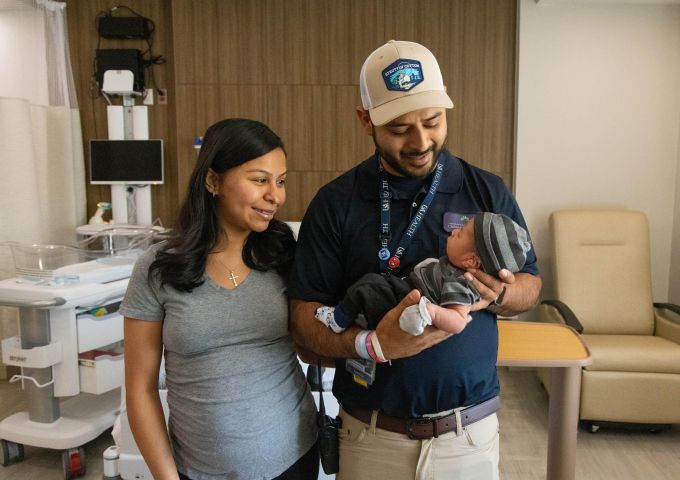
One day, Leigh suffered a stroke and collapsed at work. Two days later, she was able to attend her son's baseball tournament with her family. All because we were able to use a rare procedure to remove a clot from her brain.
That June day started like they always did, with Leigh Morton and her exercise routine. It would be a typically busy day for the mother of two: exercise, work at her office in downtown Mobile, then on to cheer for her 12-year-old son in a World Series baseball tournament.
Despite its routine beginnings, that June day held danger for Leigh. She felt a horrible head pain after straining during exercise. While it went away quickly, it returned and lasted the entire day, leading her to believe she was experiencing a migraine. Around 2 p.m., the headache worsened, and she began to see what looked like flashing lights. She passed out at her desk and was found on the ground by a co-worker.
Rushed to an area hospital by ambulance, the 46-year-old received tissue plasminogen activator (tPA), a blood-clot busting medicine that restores blood flow to the brain. Though the medication is only effective 50% of the time, it bought her time to be transferred to the region’s only Level 1 Trauma Center at USA Health University Hospital. There, experts studied what had caused Leigh’s stroke. At this point, Leigh had lost all mobility on the left side of her body.
Immediately, Dr. Steve Cordina, an interventional neurologist, had Leigh prepped for surgery. On the operating table, she remembers his calm tone, as well as the sound of the clot being pulled from her brain. “I think I got it,” Dr. Cordina said, but he was cautious so that no part of the clot remained.
When it was removed, a nurse asked Leigh to give a “thumbs-up” sign with her left hand, which had been immobile minutes before. The operating room staff cheered Leigh’s hand signal, and they were even more excited when she was able to walk independently to the bathroom moments later.
Looking back on her experience, Leigh remains fascinated by the small window of time she had to cure the stroke. Without Dr. Cordina or University Hospital, she feels she wouldn’t be with her children today.
The stroke was caused by a tear in a vessel behind her eye, which had burst due to the strain of exercise. The clot had actually been the brain’s natural way of preventing her from bleeding out of her eye. While she still has some lingering, low-grade issues, such as fatigue and a slight slowness on her left side, Leigh considers it a miracle that she was able to heal. After only two days in the hospital, she made it to her son’s World Series baseball tournament, another miracle, Leigh says.






